Next webinar: Protected Areas and Conventional Agriculture: opportunities and challenges for cooperation
EUROPARC’s next webinar will take place on the 30th of March 10:00 CET. It will look at how Protected Areas can cooperate with conventional agriculture businesses. You can sign up here (it’s free!)
Agriculture & Protected Areas
Agriculture is the most important sector in rural areas, which is why EUROPARC is actively involved in supporting dialogue and partnership between Protected Area managers and farmers.
The cooperation between Protected Areas and farmers often focuses on small, family or organic agriculture. While clearly important, Protected Areas will sometimes be linked in some way to bigger agroindustry that can influence species and habitats. In these situations, dialogue among Protected Area managers and farmers can be essential for assessing reciprocal impacts and for supporting the development of sustainable management practices, which work both for Protected Areas and farmers.
By collecting experiences with specific attention to Protected Areas in The Netherlands, Germany and Luxembourg, we aim to explore the relationship between Protected Areas and agroindustry, the challenges and potentials of this dialogue and possible partnerships.
Sign up for the webinar here
Webinar Programme
Welcome and Intro EUROPARC and topic from the Protected Areas perspective
By Stefania Petrosillo, EUROPARC Federation (Belgium).
From production and protection paradigms to a landscape approach: Opportunities for cooperation between Protected Areas and large conventional agricultural enterprises
By Lisanne Kruiswijk, EUROPARC Federation (Belgium).
Traditionally, agriculture and nature conservation are at the opposite end of land planning discussions. Agriculture can have a devastating effect on nature through nutrient spillage and pesticide use. Nevertheless, more and more farmers are implementing sustainability measures on their land and more Protected Areas are initiating cooperative projects with these farmers. A group that is usually left out of this symbiosis is the group of large conventional agricultural enterprises. Protected Areas often initiate projects with small family farms or organic farmers, while conventional agriculture still makes up a large share of the agricultural land. This analysis looks at the relation between Protected Areas and conventional agriculture in Germany, the Netherlands and Luxembourg through the lens of paradigms.
Collaboration with conventional farmers at eye level – Upper Sure case study
By Martine Stoll, Upper Sure Nature Park (Luxembourg).
The aim of the cooperation between the Protected Area, water supply and farmers in Nature Park Öewersauer is to improve water quality in the national drinking water reservoir through information, cooperation and financial incentives for technical measures. The initiative originated in a working group on agriculture in the Nature Park, where the common goal was formulated on an equal footing with all partners. Reservations and barriers to action between the agriculture and water-conservation interest groups were reduced, allowing a promotion program with a national impact to be developed. Some innovative alternative agricultural techniques and local cooperation between farmers and the drinking water producer were newly developed and applied for the first time in Luxembourg.
Pride and Prejudice!? Conventional agriculture in the international Nature Park Bourtanger Moor – Bargerveen
By Hauke Zirfas, Int. Naturpark Bortanger Moor – Bargerveen (Germany – Netherlands).
In the diverse area of Bortanger Moor- Bargerveen responsibility, I have many encounters with farmers and other actors involved in land use. From conflicts such as plowing over the boundaries of public areas (illegal land appropriation) to successful collaborations and synergy effects, the entire spectrum of relationships between the district administrations (or the nature park) and various agricultural actors is a very present part of my everyday work. Our aim is to enable a dialogue between those involved in nature conservation and agriculture.This happens in different ways on the different sides of the Dutch-German border.
Let’s talk about it…
All participants have the opportunity to exchange on the topics discussed and/or ask questions.
Closing remarks
By Joao Melo, Cascais Ambiente (Portugal).
The webinar will last approximately 1h 30min and it will be hosted in English. We welcome participants from all across the network.
Get to know the speakers!
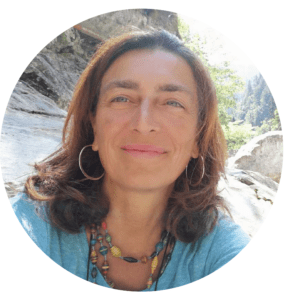
Stefania Petrosillo – Policy Officer, EUROPARC.
I am the EUROPARC Policy Officer in Brussels. Regarding Agriculture, on behalf of the Federation I take part in the EU debates about the reform of CAP and the development of the Farm to Fork and Biodiversity Strategies, and I am a member of the Brussels platforms “CAP NGOs Working Group” and “EU Sustainable Food Policy Coalition”. I also coordinate the EUROPARC Commission for Agriculture and Protected Areas.
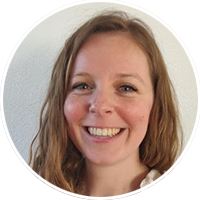
Lisanne Kruiswijk – Policy Assistant EUROPARC.
I am a graduating student MSc Forest and Nature Conservation at Wageningen University and I am specialised in nature policy and the relation between nature and agriculture. The final part of my studies was a six month internship at EUROPARC Federation as a policy assistant. I have been assisting the EUROPARC Policy work in for EUROPARC in Brussels and did a small research on Protected Areas and conventional agriculture.
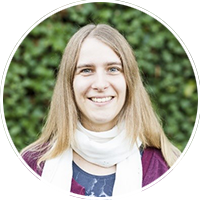
Martine Stoll – Upper Sure nature park – Agricultural Cooperation Upper Sure – LAKU.
I have been working at the Upper Sure nature park in Luxembourg since January 2015. I helped in the founding process of a cooperation between the local farmers, the drinking water provider SEBES and the Upper Sure nature park. I am currently project manager of this cooperation, LAKU; the main aim of which is water pollution prevention.
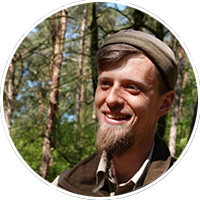
Hauke Zirfas – Forest Scientist and Forest Ecologist and Nature-Park-Ranger for Int. Naturpark Bortanger Moor – Bargerveen.
In my diverse area of responsibility, I have many encounters with farmers and other actors involved in land use. From conflicts such as plowing over the boundaries of public areas (illegal land appropriation) to successful collaborations and synergy effects, the entire spectrum of relationships between the district administrations (or the nature park) and various agricultural actors is a very present part of my everyday work.
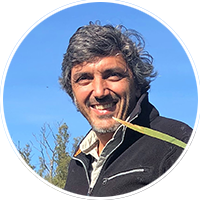
João Melo – Director Cascais Ambiente.
I am a landscape architect dedicated to nature conservation and
biodiversity, with experience in the planning and execution of
conservation and ecological restoration projects, engaging volunteers, promoting nature tourism, involving the management of multidisciplinary teams.
This webinar is supported by:
